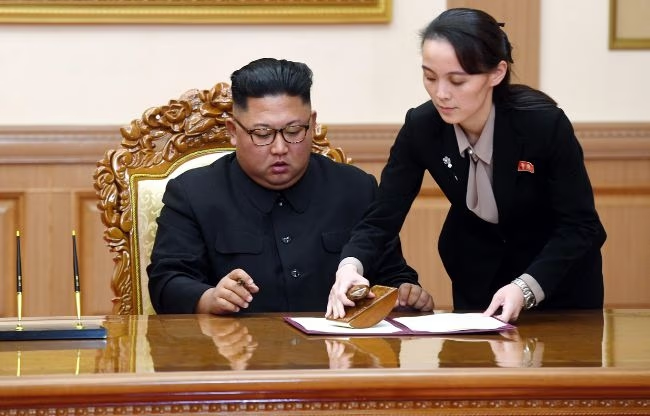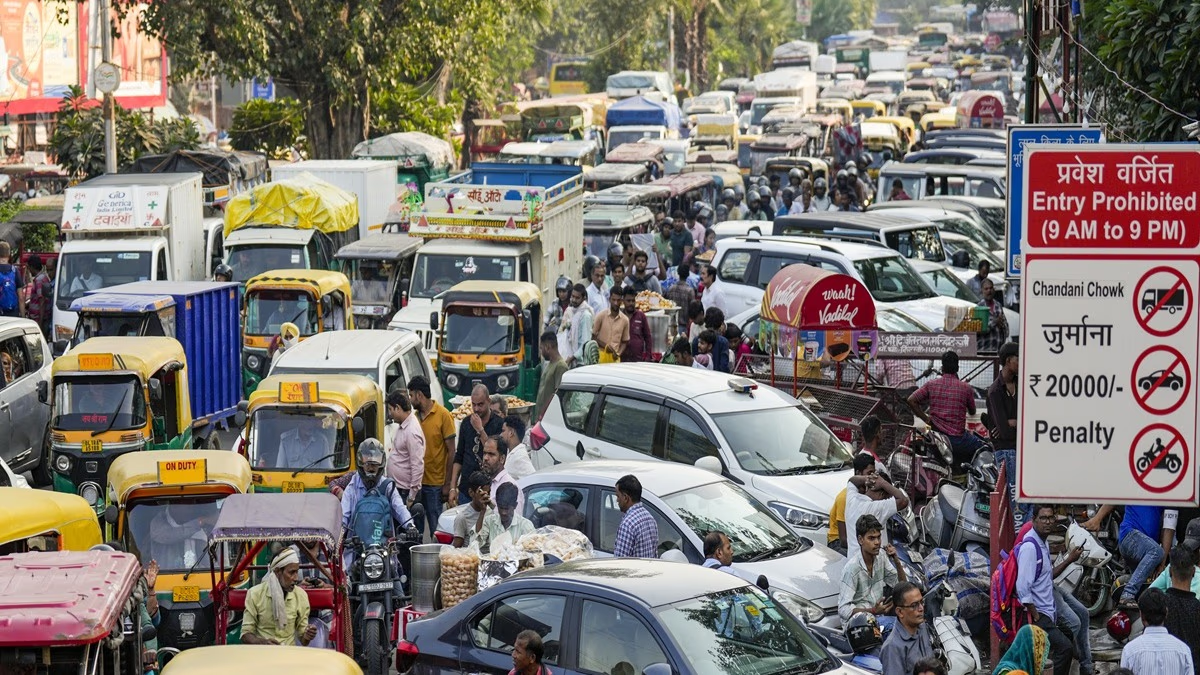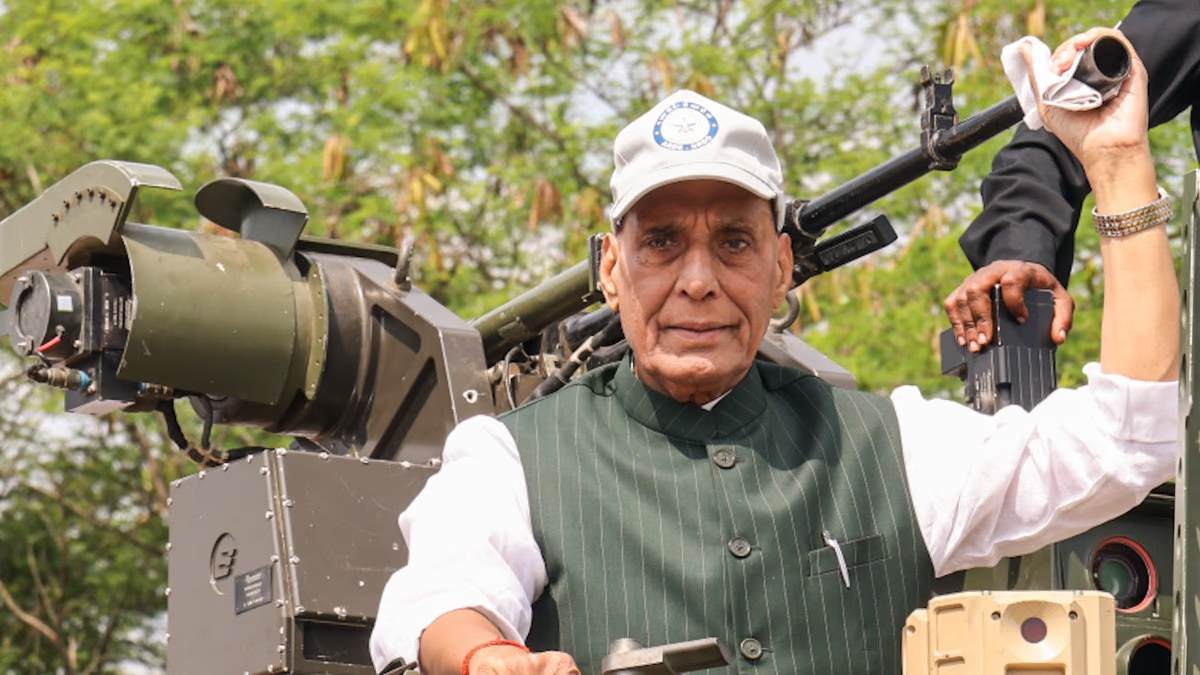After the strains in Russia-Ukraine and the Middle East, is the world edging closer to yet another conflict? This question looms large as friction intensifies between the adversaries North and South Korea, reaching a point where threats of war are exchanged from both sides.
North Korea has accused South Korea of breaching its airspace by deploying drones over Pyongyang to distribute leaflets critical of the North Korean regime. Kim Jong-un's outspoken sister, Kim Yo-jong, has issued stark warnings aimed at South Korea.
In response, South Korea has dismissed these claims of deploying drones in Pyongyang, issuing a cautionary note that any aggressive move from the North posing a threat to their civilians will be met with a robust defense.
Tension frequently escalates between North and South Korea. This time, however, North Korea has lodged severe accusations against its southern neighbor and threatened with war. Let’s explore how the situation unfolded.
North Korea alleges that thrice this month, drones have been deployed over Pyongyang to scatter leaflets laced with vitriol against its government and leader, Kim Jong-un. These drones are purportedly operated by South Korea.
The North Korean news agency, KCNA, reported that these leaflets carried inflammatory and nonsensical statements. Their foreign ministry has referred to South Korea's actions as airspace violations, tantamount to a military assault.
Initially, South Korea’s defense minister refuted these allegations. Nevertheless, the Joint Chiefs of Staff later admitted to not being able to verify the North's claims conclusively.
This marks a historic first where North Korea accuses its neighbor of deploying drones to disseminate leaflets attacking Kim Jong-un. The North claims these incidents have taken place multiple times this month and vowed to retaliate with full force if repeated.
North Korea's defense ministry has reportedly commanded artillery and army units close to the South Korean border to be in a state of ‘open fire’ readiness. Further, should drones appear from the South, there are standing orders to immediately target military bases.
In a recent broadcast on Sunday, a North Korean defense ministry spokesperson declared that an attack would effectively reduce South Korea to ashes.
In a dramatic warning, Kim Jong-un's sister, Kim Yo-jong, cautioned the South against any 'suicidal' drone flights, threatening devastation.

Source: aajtak
South Korea has categorically denied these allegations from the North. On Monday, it accused North Korea of obliterating parts of the northern segments of inter-Korean roads in an apparent display of wrath by Kim Jong-un.
Screens have been erected along the border, followed by road demolitions behind them, according to Lee Sung Joon, a spokesperson for the Joint Chiefs of Staff.
South Korean ministry spokesperson Koo Byung-sam suggested that accusations of drone flights over Pyongyang are an attempt to foster instability within South Korea while solidifying the North's internal power dynamic.
Speculations arise from Lee Sung that these provocations might be a strategy by the North to amplify pressure on the South.
This is certainly not North Korea’s first threat of war aimed at South Korea. Experts believe North Korea exhibits heightened aggression this time, even preparing troops for engagement in the demilitarized zone.
The North has warned of turning South Korea into a 'heap of ashes' in retribution. This maneuver could boost Kim Jong-un’s standing domestically and bolster his political fortitude.
Moreover, with upcoming presidential elections in the US, North Korea might be angling to position itself as a significant contender in the Korean Peninsula, showcasing its capacity to instigate fear and unsettle the region.
Today, North and South Korea stand opposed, a division rooted in a history over 70 years old. Yet, it wasn't always so. Historically, they were united as the Korean Peninsula, a landmass surrounded by water.
In the eastern part of Asia lay the Korean Peninsula, once ruled by the Goryeo dynasty from 918 to 1392.
Later, the Joseon dynasty took reign, ruling for nearly 500 years. In 1897, King Gojong of the same line established the 'Korean Empire.'
During this era, Japan was an emerging power, boasting a formidable military. By 1910, the Japanese empire had seized control over the Korean Peninsula, marked by brutality and cruelty, reasons the two Koreas harbor resentment toward Japan.
World War II raged from 1939 to 1945, ending disastrously for Japan. The liberation of the Korean Peninsula from Japanese control happened only after Japan's defeat in 1945.
Korea celebrated liberation from Japan only to plunge into the Cold War, a lingering conflict between the USSR (now Russia) and the USA that partitioned Korea. America assumed control of the South, while the Soviet Union controlled the North.
August 15, 1948, saw the emergence of separate governments in both territories. North Korea became the 'Democratic People's Republic of Korea,' while the South formed the 'Republic of Korea.' Pyongyang became the capital for the North, and Seoul for the South.
The so-called Democratic Republic in the North was essentially a monarchy under Kim Il-sung, grandfather to Kim Jong-un. South Korea, on the other hand, with American support, appointed Syngman Rhee, a staunch anti-communist, at the helm.
The division bred animosity, triggering Kim Il-sung to move forces toward the South on June 25, 1950, aiming to unify Korea. Thus, began the Korean War, drawing in the US and 15 other nations positing with the South, while the North allied with Russia and China.
This grueling conflict lasted for three years, claiming countless lives. It wasn't until July 27, 1953, that the hostilities ceased, without a formal peace treaty, leaving the Korean War technically ongoing.
Post-war, South Korea prospered with American support, embracing democracy, industrial growth, and thriving as a sovereign nation. In stark contrast, under dictatorship, North Korea lagged with poverty and limited freedoms, isolated from the world despite the partition and lingering tensions.




